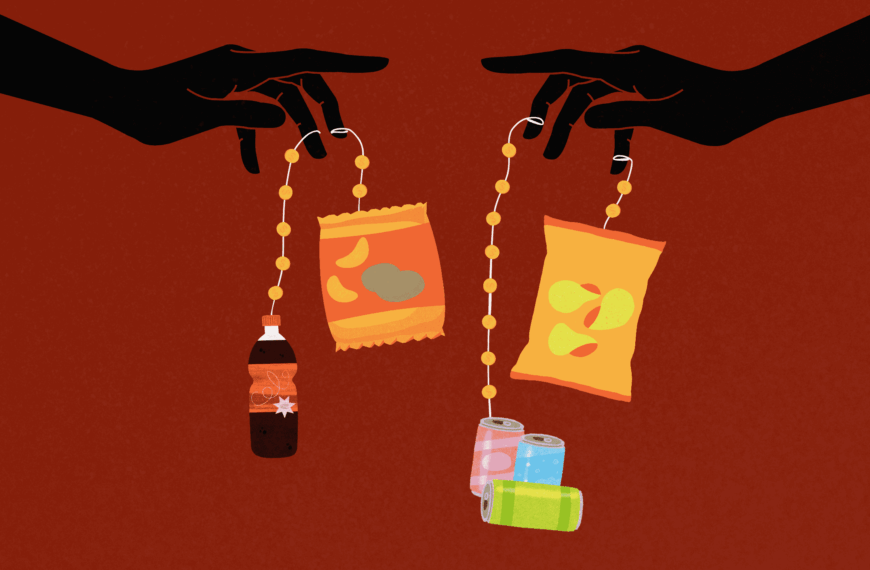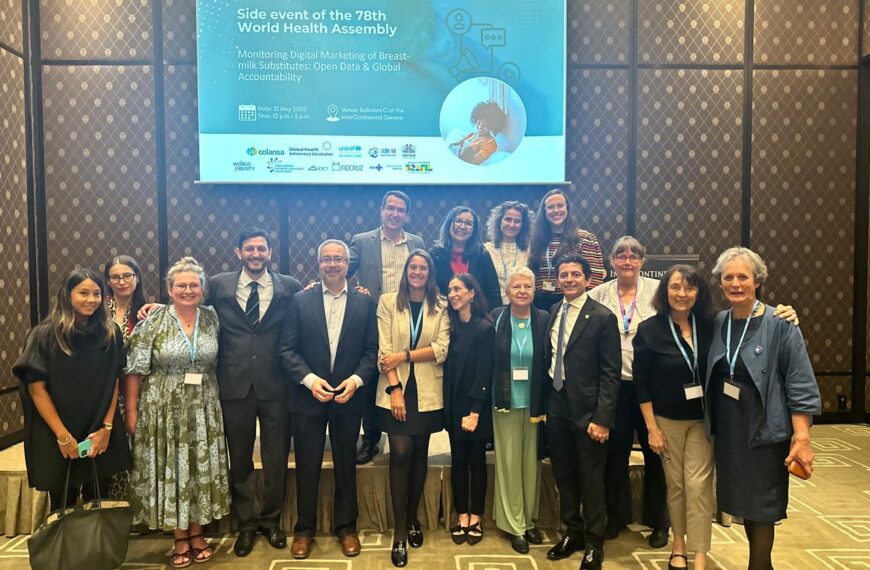Dear Students of 2030,
2030 isn’t just a milestone—it’s a turning point for global development; it marks our global check-in on the 2030 Sustainable Development Goals, including Goal 3:Good Health and Well-being. As you step into this new school year during this critical year, let’s rewind to 2024. We were a group of youth health advocates from across the Caribbean who fought passionately for healthier school food environments. Back then, students like yourselves were growing and learning in spaces that did not support your physical and mental well-being—a clear violation of your right to health. We could not just stand by and do nothing. So, we worked tirelessly to address these challenges, creating a vision for a healthier future—a future we hope has become a reality for you in this year of global accountability.
Food Environments
In our school environments of 2024, ultra-processed foods—foods high in Salt, Sugar, Fat (including trans fats) and other additives —dominated school menus. These unhealthy foods were widely available and aggressively marketed in schools. Branded giveaways, brightly coloured product posters, and fast-food companies sponsoring school events were commonplace. Even social media was not safe, as children were constantly exposed to ads featuring popular personalities promoting these harmful choices.
Why was this a problem? The constant exposure to unhealthy food ads directly influenced children’s eating habits, driving them toward unhealthy choices that increased their risk of obesity and non-communicable diseases (NCDs). By 2024, one in three Caribbean children was living with overweight or obesity, and nearly 75% of deaths in the region were linked to NCDs. We hope that by 2030, these statistics have shifted for the better, and that your generation is now thriving in healthier environments—ones shaped by the commitments made by our region and global leaders.
Policy and Youth Advocacy
CARICOM leaders acknowledged the gravity of NCDs as early as 2007 in the Port of Spain Declaration, yet progress remained slow. A major issue fueling the high rates of obesity and NCDs was the absence of strong policies to safeguard school food environments. In many countries, implementation and enforcement lagged, leaving children exposed and vulnerable to unhealthy food options..
Caribbean youth—including advocates like us—took a stand in response. We held policymakers accountable for their commitments, demanding more action through public campaigns and dialogue. In Barbados, for example, youth advocates contributed to developing the School Nutrition Policy, which was implemented in 2023. Additionally, the Barbados Childhood Obesity Prevention Coalition launched the “Cool School Nutrition Tour” in early 2024, youth advocates visited schools nationwide to educate students on the policy’s benefits. The advocates also launched an article for International Youth Day that year, highlighting the firm stance against fast-food companies that sought to undermine these efforts.
In Jamaica, youth from the Jamaica Youth Advocacy Network (JYAN) and UNICEF Jamaica were actively involved in consultations on their country’s School Nutrition Policy. When authorities failed to confirm the policy’s implementation for the 2024-2025 academic year, youth advocates launched an open letter demanding urgent action from the Ministry of Education and Youth (MOEY).
In February 2024, the Healthy Caribbean Coalition (HCC) and Healthy Caribbean Youth (HCY), JYAN, the Heart Foundation of Jamaica (HFJ), The Heart and Stroke Foundation of Barbados (HSFB), and UNICEF Jamaica to hold the very first regional youth meeting on healthy food policies. Youth from 13 CARICOM countries united to advocate for comprehensive school food regulations, including selling and marketing ultra-processed foods. Our voices were loud, clear, and united.
Looking Ahead
By 2030, we envision a Caribbean where all CARICOM countries have implemented comprehensive school nutrition policies regulating the sale and marketing of foods high in salt, sugar and fat. We see you having access to healthier meals, clean drinking water, and plenty of opportunities for physical activity at school. Health education will be woven into your curriculum, empowering you to make informed choices about your well-being. The progress we’ve made so far gives us hope for this healthier future.
As we reflect on the past, we hope you, today’s youth, continue to demand more from your leaders. Remember that every child has the right to the highest attainable standard of health, and governments must protect that right as signatories to the United Nations Convention on the Rights of the Child. Your bold advocacy is not just essential but integral to our collective success.
In 2024, countries like Antigua and Barbuda, The Bahamas, Barbados, Belize, Dominica, Grenada, Jamaica, St. Kitts and Nevis, St. Lucia, St. Vincent and the Grenadines, and Trinidad and Tobago have either taken steps to regulate school food environments or are in the process of doing so. However, partial measures are not enough. It is critical that comprehensive, evidence-based policies—shaped by your voices—are fully implemented. The consequences of not enforcing these policies will significantly negatively affect the region.
CARICOM leaders took a historic stand in 2007 with the Port of Spain Declaration, demanding urgent action on NCDs. Seventeen years have passed since that declaration—and by the time you read this, 23 years will have passed. The time for talk is over. Now, it is up to our current CARICOM leaders to rise to the challenge, build on the foundations laid by their predecessors, and prioritise our region’s health. Their leadership now will determine the future health of generations to come.
Our Hope for the Future
As you celebrate Caribbean Wellness Day on September 14, 2030, and reflect on this pivotal year of global accountability, we urge you to recognise your power in shaping the health and future of our region. Progress has been made, but setbacks have also occurred. It is up to you to carry the torch forward, advocating for change where it is still needed and ensuring that the health and well-being of Caribbean youth remain a top priority. You are not just the future. You are the present. Your actions and demands matter. You have the right to good health, and with your courage and determination, you can help create a future where every child in the Caribbean has the opportunity to thrive.
With hope for a healthier tomorrow,
Youth Health Advocates of 2024
Simeca Alexander-Williamson, Simone Bishop-Matthews, Ashley Foster Estick, Kaela Gerald, Dorial Quintyne, Offniel Lamont, Danielle Walwyn, Fiona Zhang on behalf of Healthy Caribbean Youth
The post Letter to the Students of 2030: Hope for The Future appeared first on Healthy Caribbean Coalition.
Healthy Caribbean Coalition Leer más







